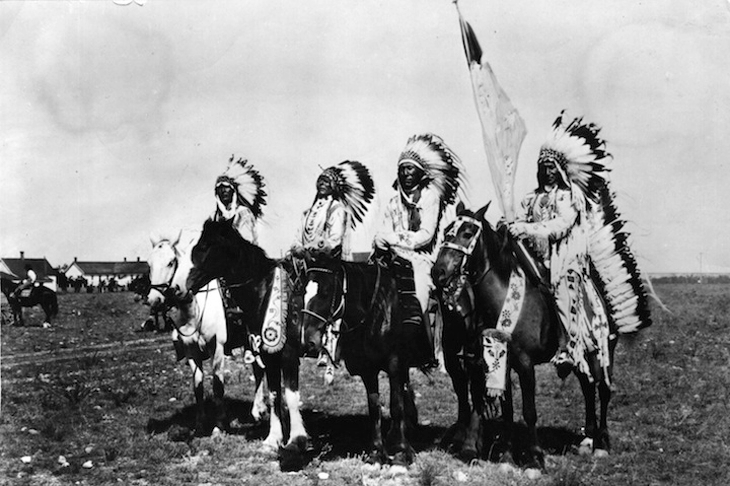A few years ago, a group of Native American leaders drove 12 hours from Oklahoma to Denver Museum of Nature and Science, a natural history museum in the Rocky Mountains of Colorado, to collect 26 sets of human remains. When Chip Colwell, the museum’s senior curator of anthropology, explained to them that, though the remains were fragments from people that populated the Great Plains, he didn’t know from which tribes, they were shocked: ‘The room plunges into silence,’ he recounts, followed by ‘heated deliberation’. The visitors were affronted. ‘They had come to rebury their kin — not strangers.’
This is only one of a number of fraught cases in Colwell’s lightly written, insider’s account of the battle over human remains and objects in museums. Skirmishes began in the 1970s in North America, rapidly breaking out into a vicious war of words. On one side were scientists who study human remains; on the other, campaigners who want to repatriate them to indigenous communities. While repatriation derives from the Latin repatriatus, meaning having been sent home again, the bones rarely go ‘home’. They are hundreds, if not thousands of years old; no one knows where home is. Instead, they are often reburied by a tribe deemed affiliated on the basis of factors that include group identity, geography and oral history.
The problem is that human remains are unique evidence, vital for research on evolution, population movement and the lifestyle of past peoples. But, as they were once human beings, they are also the focus of remembrance, associated with the sacred, and easily used in political fights, in this case the making of amends for historical wrongs. Nagpra, the Native American Graves Protection and Repatriation Act, made law in 1990, mandates repatriation as an act of restitution for the heinous treatment of American Indians by scientists, anthropologists and settlers over centuries.








Comments
Join the debate for just £1 a month
Be part of the conversation with other Spectator readers by getting your first three months for £3.
UNLOCK ACCESS Just £1 a monthAlready a subscriber? Log in